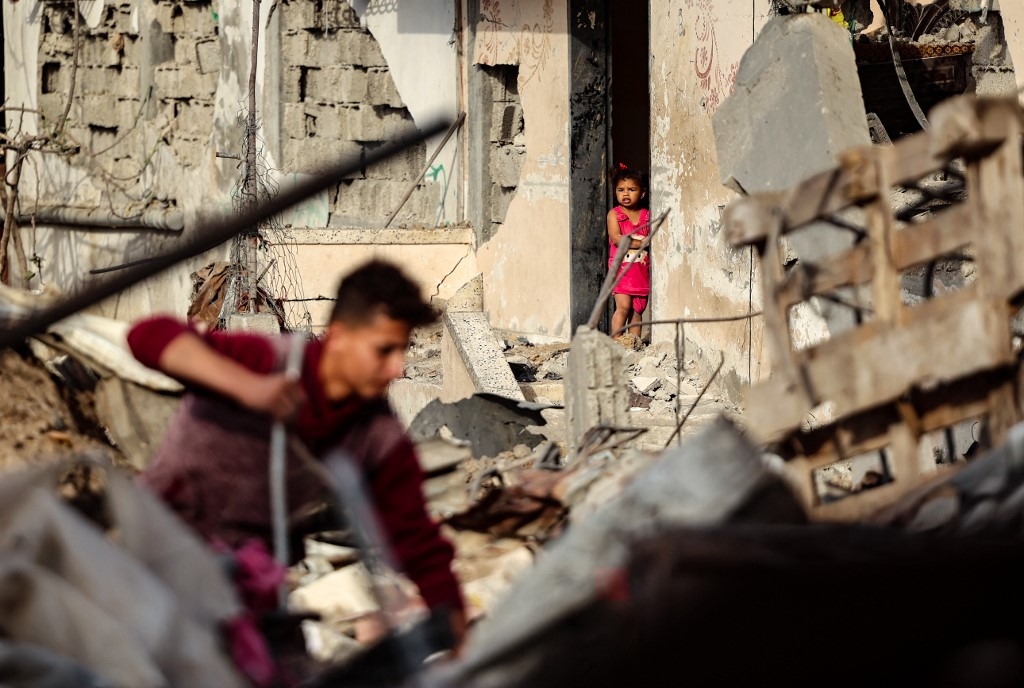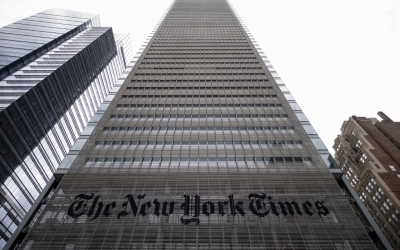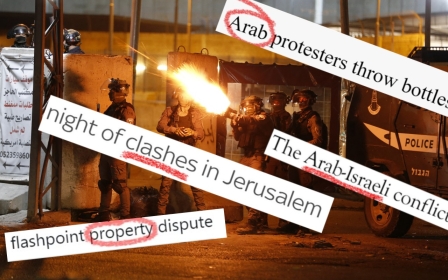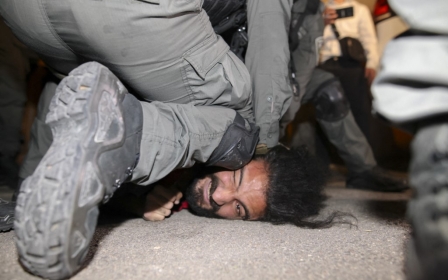Israel-Palestine: There are not 'two narratives' - just one deadly reality

The latest round of Israeli slaughter in Gaza, along with its coverage in western mainstream media, has highlighted a glaring chasm between the facts of daily Palestinian life and the fictions Israel and its allies have fed the world.
To repeat that western media outlets are biased against Palestinians has become a truism. They have knowingly twisted truth into fiction not just by calling a colonial conquest a “conflict” or property theft “evictions”; they also get the plot wrong. There was a land without a people, the story goes, and a people without a land. These media outlets are invested in their own ignorance, having sold this fiction for decades.
They are invested in sustaining the course of the settler-colony. We read them not to find out what happened, but to see how they are spinning it
This time around, though, the soup is so salty that even the cook had to admit it. Headlines citing “the misery of life under occupation” would never previously have been dreamt of in the New York Times, and yet it landed on the front page last week. Suddenly, the US newspaper of record was printing pictures of Palestinian children killed by Israeli forces on its front page.
Voices of defiance against Israeli war crimes have become common in Europe and the US, in a way we could not have imagined even a decade ago. Regular NYT columnists - not just those “guest columnists” who pop in during moments of crisis to give the newspaper an air of impartiality - are now writing on the shaking of the previously unshakable friendship between the empire and its favourite ally.
There are more balanced venues, to be sure. But importantly, media such as the BBC and the New York Times are no longer in charge of the story. They no longer establish the discourse; they deviate from it. They are invested in sustaining the course of the settler-colony. We read them not to find out what happened, but to see how they are spinning it.
David and Goliath
Indeed, there is the bloody reality that Palestinians have lived since their homeland was overrun by European Zionists, and then there is the fiction proffered by European and US media. These two diametrically opposed poles are falsely called two “narratives”; if we believe one side over another, we are just buying into a “narrative”.
In reality, Israel is a garrison state - a massive military machine, from top to bottom. Palestinians are killed, occupied and their land is robbed. Palestinians do not have an army, a navy, an air force; they are the David to the Israeli Goliath. Media such as the BBC and the New York Times side with Goliath, calling him David, and they blame David, calling him Goliath. Or, even worse, they blame both David and Goliath and call that "balance".
In his landmark essay “Politics and the English Language” (1946), George Orwell wrote scathingly of the “ugly and inaccurate” prose that cliched and ideologically infested politics perpetrates on the English language. He famously denounced the “lifeless, imitative style” of such writings, pointing to “the political dialects to be found in pamphlets, leading articles, manifestos, white papers and the speeches of under-secretaries”.
More emphatically, he observed: “In our time, political speech and writing are largely the defence of the indefensible. Things like the continuance of British rule in India, the Russian purges and deportations, the dropping of the atom bombs on Japan… Thus political language has to consist largely of euphemism, question-begging and sheer cloudy vagueness. Defenceless villages are bombarded from the air, the inhabitants driven out into the countryside, the cattle machine-gunned, the huts set on fire with incendiary bullets: this is called pacification.”
This was in 1946, but Orwell might as well have been writing of the BBC and the New York Times today, when it comes to their coverage of Israel-Palestine. Several years later, in his iconic novel 1984, Orwell elevated that critique into the nightmare of “Newspeak”. We now live that nightmare.
Antisemitism warnings
People who care about the fate of the Palestinians might now be very excited about the fact that the New York Times is starting to pay closer attention to the misery of those in Gaza. Along with detailed articles on the terrors the Israeli state has visited upon Palestinians, the newspaper has given ample space to Palestinian writers to share their thoughts and experiences.
Yet, at the same time, decent people such as US Senator Bernie Sanders have also come out to warn that too much criticism of Israel could translate into antisemitism, so people should “tone down” their “rhetoric”.
We should all be afraid of antisemitism, but the enduring sickness of antisemitism has nothing to do with Palestinians and their cause. Entrenched antisemitism in the US and Europe has been deliberately conflated with the Palestinian national liberation movement in order to silence those who dare to speak of the terror Israel systematically visits upon Palestinians. While this might silence the liberal opposition, it will not silence Palestinians or sidetrack them from their just cause.
Palestinians have long been fighting their own fights, writing their own stories, singing their own songs, and living their own struggles. Whether most Americans or Europeans will finally see the light and come to join them on the day of their impending victory remains to be seen.
The views expressed in this article belong to the author and do not necessarily reflect the editorial policy of Middle East Eye.
Middle East Eye propose une couverture et une analyse indépendantes et incomparables du Moyen-Orient, de l’Afrique du Nord et d’autres régions du monde. Pour en savoir plus sur la reprise de ce contenu et les frais qui s’appliquent, veuillez remplir ce formulaire [en anglais]. Pour en savoir plus sur MEE, cliquez ici [en anglais].







